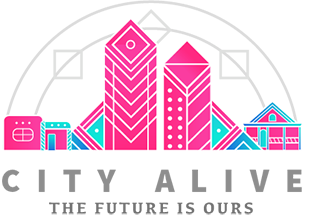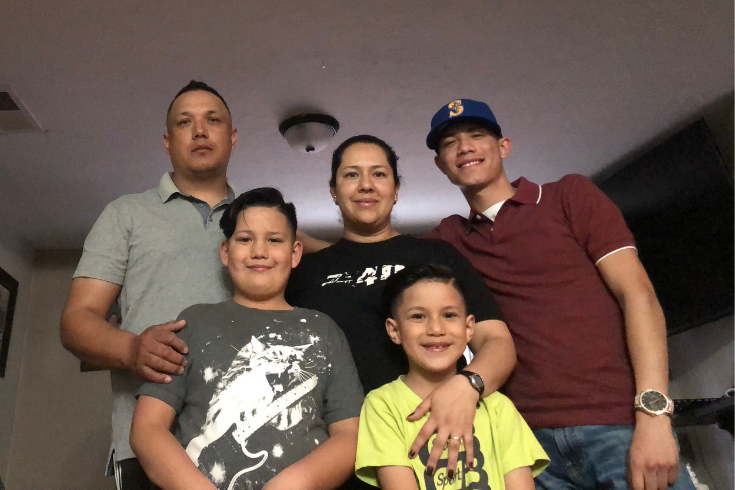First, Fix the Roof:
How community stabilization loans increase entrepreneurship in communities of color.
For many entrepreneurs of color, the first step to owning a business begins long before applying for a business loan. It begins with a roof repair. It begins with a new timing belt. It begins with finding reliable, affordable childcare. The barriers to business ownership for entrepreneurs of color are staggering—and overcoming these obstacles starts before incubators and seed funding—it starts with security.
Before Berenice Saucedo could start her food truck business, she needed to fix the hole in the roof. She couldn’t consider taking on the risk of entrepreneurship, not with a leaking roof and unstable income, her family life felt too precarious. Saucedo applied for a Co-op Capital loan through Nusenda Credit Union and the Family Independence Initiative. The funds allowed her to first repair the house, then invest in her family’s small business.
“We felt the biggest impact financially, but emotionally as well,” Saucedo said. “Working for a boss, sometimes we got hours, some weeks not enough—we were always waiting to see, ‘Will we get enough money this week?’ Then in January, my contract was over and my husband was laid off from his job—I asked, ‘Now what are we going to do?’”
When the Family Independence Initiative (FII) of Albuquerque called to say the loan application was approved, Saucedo was in disbelief, “Oh my gosh, someone is trusting us? It was like a door. It was like a light.”
The $10,000 low-interest loan allowed her family to repair the leaking roof, work on repairs to the food truck and buy a trailer—enabling her husband to go back to work as a self-employed painter and landscaper. Saucedo now had the financial security and emotional bandwidth to focus on the food business. She and her sons are currently working to upgrade appliances and ventilation systems in the food truck and will apply for City permits this year.
Social and Emotional Capital
“Many mistake [the low-income] plight for a lack of resourcefulness, drive or direction in how to run their lives,” said Susy Sarmiento, Director of FII Albuquerque. “This has resulted in the negative perception of low-income families. They are viewed as liabilities rather than assets.” The data shows this perception couldn’t be more wrong.
FII, a national nonprofit focused on economic and social mobility for low-income populations, has found that small, direct investments in community stabilization results in rapid acceleration of economic mobility.
FII studies show from 12 months before to 12 months after drawing capital from their UpTogether Fund, total income increased by an average of 19 percent, more than $5,500; at the same time, reliance on government entitlements and subsidies decreased by 42 percent, or nearly $1,500. These numbers show a stunning acceleration in economic mobility. And the Co-op Capital program is corroborating this conclusion locally, as well.
Since the program’s inception, Nusenda and its six original Co-op Capital partners (including FII) have dispersed $664,446 to 363 borrowers, averaging $1,828 per loan. Traditionally considered “high-risk” borrowers, these Co-op Capital recipients have a default rate of less than one percent.
Projects like FII and the Co-op Capital program not only lend liquid capital, they support the building of “social capital”—a wealth that is qualitative, not quantitative. It means people feel supported by their community, have access to childcare, work fewer jobs, enjoy more time at home and experience environmental stability. This strength carries over into confidence to start or scale a business. “Access to opportunities like this makes us, as immigrants, feel like we can do more, even if we’re not in our home country,” Saucedo said. “It gave me hope, it gave me confidence.”
Saucedo described walking into Nusenda to collect the loan: “I was nervous. When I got there everyone was looking at me. I was thinking, ‘Are they going to ask me for more paperwork? Maybe they made a mistake, and it’s not approved after all?’ But I went up and said, ‘My name is Berenice and I’m here for my loan.’”
The Confidence to Scale
The qualitative factors of social capital, like stability and security, will have major quantitative results in communities of color, FII argues. “As a nation, we have missed an opportunity to invest directly in the initiative and strength of families working toward economic mobility,” Sarmiento said. This is especially urgent, considering just one minority group example: Latino business growth continues to outpace white-owned businesses by double or triple the national average. The State of Latino Entrepreneurship 2016 study found that investing in the sustainability and scalability of these businesses could mean an increase of 1.3 trillion dollars in sales revenue alone.
As FII and Co-op Capital have shown, access to small-dollar community stabilization loans—for a roof, a new fridge, a car repair—help families feel less stressed and more confident about their future, giving them the power to dramatically improve their own lives, and act on their entrepreneurial ambitions.
“Community stabilization capital will be the engine for increasing minority entrepreneurship,” said Sarmiento. “In our work in Albuquerque, we see low-income families are the lynchpin to creating higher household income and greater economic stability for the whole ecosystem.”
Connect the Dots
City Alive is a city-wide initiative working to create more equitable capital systems in support of Albuquerque’s entrepreneurs, with a focus on people of color. Read more about the Co-op Capital program and our work in racial equity.


